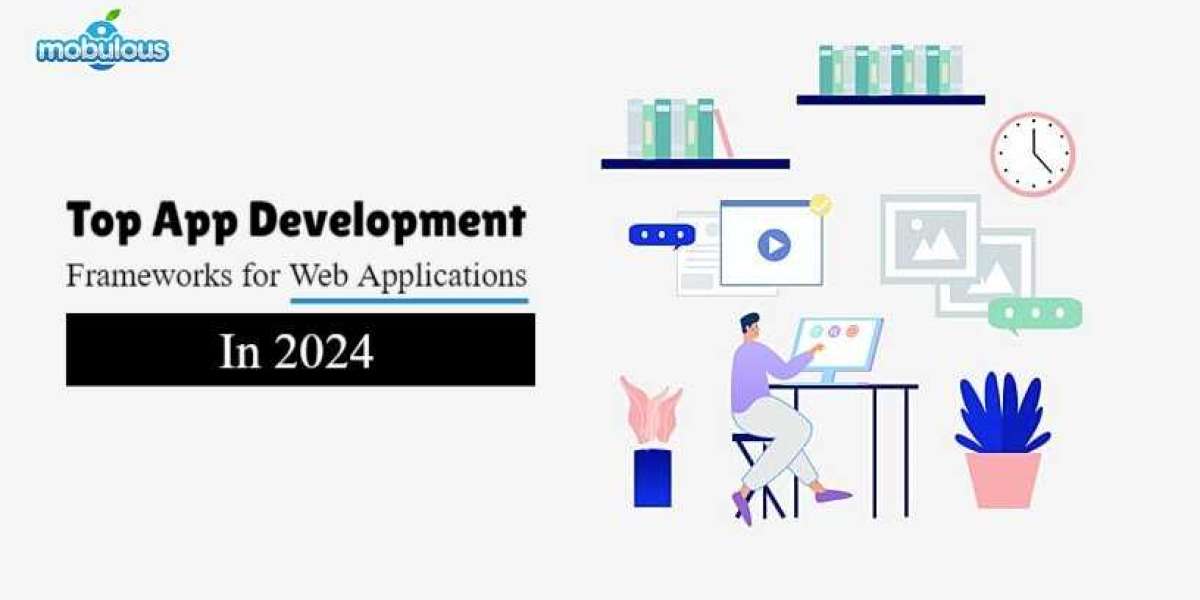Introduction
In the dynamic world of web development, choosing the right framework is crucial for building robust and scalable web applications. With technology constantly evolving, developers are often faced with a myriad of options when it comes to selecting the best app development frameworks. In this article, we'll explore the top app development frameworks for web applications in 2024 and delve into their features, benefits, and popularity in the developer community.
Importance of App Development Frameworks
Before diving into the specifics, let's first understand why app development frameworks are essential for web development projects. App development frameworks provide developers with a structured foundation and a set of tools and libraries to streamline the development process. By leveraging pre-built components and standardized methodologies, frameworks enable developers to build applications more efficiently, saving time and effort in the development lifecycle.
Top App Development Frameworks for Web Applications
- React
React remains one of the most popular choices for building modern web applications. Developed by Facebook, react is a JavaScript library for building user interfaces. Its component-based architecture and virtual DOM make it ideal for creating interactive and dynamic UIs. With a large and active community, extensive documentation, and a rich ecosystem of third-party libraries, React continues to be a top choice for web developers in 2024.
- Angular
Angular, developed by Google, is another powerful framework for building web applications. Known for its comprehensive features and robust architecture, Angular offers a full-fledged solution for front-end development. With features like two-way data binding, dependency injection, and modular design, Angular provides developers with the tools they need to build scalable and maintainable applications.
- Vue.js
Vue.js has gained significant traction in recent years due to its simplicity and flexibility. Developed by Evan You, Vue.js is a progressive JavaScript framework that excels in building user interfaces and single-page applications. Its intuitive syntax, easy learning curve, and efficient reactivity make it an attractive option for developers looking to build modern web applications quickly.
- Django
Django is a high-level Python web framework that facilitates rapid development and clean, pragmatic design. Built for speed and scalability, Django comes with a range of built-in features, including authentication, ORM, and templating, allowing developers to focus on writing code rather than reinventing the wheel. With Django, developers can build secure and maintainable web applications with ease.
- Flask
Flask is a lightweight and minimalist Python web framework ideal for building small to medium-sized web applications. Despite its simplicity, Flask offers flexibility and extensibility, allowing developers to add features as needed. With its modular design and easy-to-understand documentation, Flask is an excellent choice for developers looking for a simple yet powerful framework for web development.
- Express.js
Express.js is a fast, unopinionated, and minimalist web framework for Node.js. Designed for building web applications and APIs, Express.js provides developers with a robust set of features and middleware to streamline the development process. With its minimalistic approach and focus on simplicity, Express.js is an excellent choice for developers looking to build lightweight and scalable web applications.
ALSO READ: What Are the Most Popular Web Development Frameworks for 2023?
Comparison of Frameworks
While each framework has its strengths and weaknesses, it's essential to consider factors such as performance, scalability, community support, and ecosystem when choosing the right framework for your project. Conducting thorough research and evaluating the specific requirements of your project will help you make an informed decision.
- Future Trends
As technology continues to evolve, we can expect to see new frameworks emerge and existing frameworks evolve to meet the changing needs of developers and businesses. Trends such as serverless architecture, microservices, and progressive web apps are likely to shape the future of web development, influencing the adoption and evolution of app development frameworks in the years to come.
Conclusion
In conclusion, choosing the right app development framework is crucial for building successful web applications in 2024 and beyond. Whether you opt for React, Angular, Vue.js, Django, Flask, Express.js, or any other framework, it's essential to consider your project requirements, team expertise, and long-term goals. By selecting the framework that best aligns with your needs, you can streamline the development process, enhance productivity, and deliver exceptional user experiences.
FAQs
- Which app development framework is best for beginners?
For beginners, Vue.js is often recommended due to its simplicity, intuitive syntax, and gentle learning curve.
- What is the most widely used app development framework in 2024?
React remains one of the most widely used frameworks in 2024, thanks to its popularity, active community, and robust ecosystem.
- How do I choose the right framework for my project?
When choosing a framework, consider factors such as project requirements, team expertise, scalability, performance, and long-term support.
- Are there any upcoming frameworks to watch out for in 2024?
While there are no definitive predictions, emerging trends such as serverless architecture and micro frontends may influence the development of new frameworks in 2024.
- Can I use multiple frameworks in a single project?
While technically possible, using multiple frameworks in a single project can lead to complexity and maintenance overhead. It's generally recommended to stick with a single framework for consistency and ease of development.








